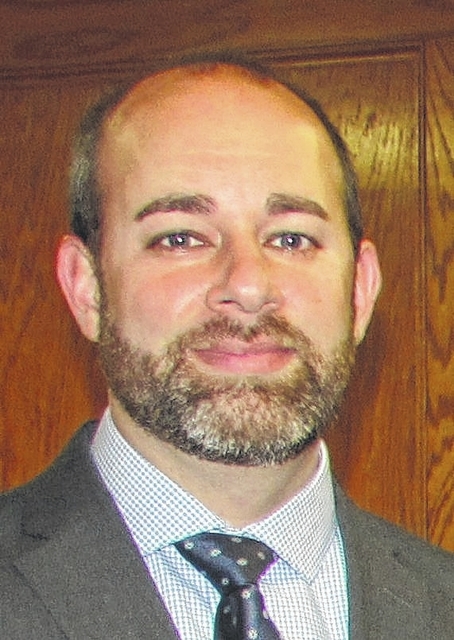Dried up revenue streams coupled with mounting operating costs for the City of Clinton have prompted proposals for two relatively new ways to capture additional money — business registrations and upping the vehicle tag fee.
City manager Shawn Purvis presented the two proposals to the City Council earlier this week. While not officially voting to put the two measures into effect, the Council gave its blessing for city staff to move forward on the issue.
“We have allocated the use of fund balance in the 2014-15 and 2015-16 budgets but have not had to use any of the reserves,” Purvis noted in a memo to Council. “Increases in insurance, retirement costs and operations as well as the potential implementation of new programs may require additional funding sources.”
While Purvis said he is not recommending a property tax rate hike, he asked City Council to consider two new options: business registration program and an increase in the vehicle tag fee. Implementing both could mean around $60,000 in additional revenue.
“We’re heavy into the budget season now and we’re trying to get a good estimate of where revenues are,” said Purvis.
Over the past several years, the city has experienced a loss of revenue sources with the end of the sales tax hold-harmless period, the banning of internet sweepstakes and the General Assembly’s removal of municipal privilege license authority, the city manager noted. The resulting revenue loss has been approximately $210,000, equivalent to 3 cents on the tax rate. Privilege license taxes alone was an annual revenue stream of $140,000, the bulk of which was generated by the sweepstakes establishments.
Coupled with increasing operating costs, retirement costs and health insurance costs, the loss of revenue poses a “significant strain on the city’s financial sustainability,” Purvis stated.
N.C. General Statute permits towns to adopt a business registration program accompanied by a modest recovery fee, essentially replacing the privilege license tax. The average privilege license fee was $35. Implementing a business registration program with such a fee would generate $35,000 for the roughly 1,000 issued.
The business registration program will cover some of the public safety services as well as assist the city with fire inspections and planning and development.
Finance officer Kristin Stafford said the estimated cost of issuing 1,000 licenses and providing police services, including bank escorts, business security checks and false alarm responses would be roughly $65,000, or $65 per license, so the nominal fee will help offset some of the costs of conduction the program.
Having the program will also help in extending those city services.
“We want to make sure we know who is doing business in town and where those businesses are, so police, fire and planning services can assist them,” Purvis noted.
As of July 1, 2016, the N.C. General Assembly revised state law to allow cities to increase the municipal vehicle tax up to $30.
Since the early 1980s, the City of Clinton has levied a municipal vehicle tax of $5 as authorized by state law, allocating general purpose revenues for street maintenance. To assist with the transportation infrastructure burden faced by most municipalities, state legislators revised the law to allow a tax up to $30, with restrictions.
The initial $5 remains designated for any lawful purpose, but the law assigns another $5 for public transportation and the remaining $20 for street resurfacing, repairs and maintenance. Without a public transit system, Clinton can only raise the tax to $25.
Every $5 generates about $30,000, Stafford said.
“The city has multiple infrastructure needs related to streets, sidewalks and stormwater,” said Purvis, noting the importance of such funds. “With a combination of Powell Bill funding and an increase to the vehicle tax, the city could designate funds for sidewalks and stormwater while maintaining or increasing its ability to resurface roads.”
Currently, the city does not designate funds specifically for sidewalks and stormwater and has to work those projects in as needed.
Purvis said the vehicle tax along with the business registration program would maintain or improve city services and infrastructure and ease concerns of lost revenue in recent years.
“Staff recommends City Council consider adopting a business registration program at a modest fee to provide cost coverage for public safety services and allow for potential economic development data and monitoring,” the city manager stated in his memo to Council. “An increase in the municipal vehicle tax will allow the city to improve its infrastructure by allocating funds for sidewalks, stormwater and additional funds for streets.”
“These are additional revenues that help support the services we continue to provide,” he told them.
Mayor Lew Starling noted Councilman Steve Stefanovich’s absence, but noted Stefanovich was support in moving forward. Councilwoman Maxine Harris was also not present. The Council gave its blessing in a unanimous 3-0 vote for city staff to pursue implementation of the two revenue-generating measures.
“We will move in this direction for further discussion and further development,” the mayor said.

